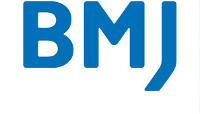Posted by Michael Wonder on 29 Nov 2016
Fair vaccine pricing please, not random acts of charity

23 November 2016 - Vaccines are essential goods produced collectively to safeguard children, wherever they live.
Last month, Médecins Sans Frontières (MSF) surprised Pfizer and the world by refusing a donation of one million doses of the company’s vaccine against Pneumococcus, the leading cause of pneumonia worldwide, killing one million children every year.
Although the need for the vaccine is high—only 37% of children worldwide are being immunised—MSF judged it more important to press the company to lower the price, which is the primary obstacle to access. And with success: Pfizer, following the example of GlaxoSmithKline, the other producer of pneumococcal conjugate vaccines, has since announced that humanitarian organisations will get the vaccine at a special price, similar to that it is already offering to Gavi, a public-private partnership that works to increase access to vaccines in some 50 of the poorest countries.

